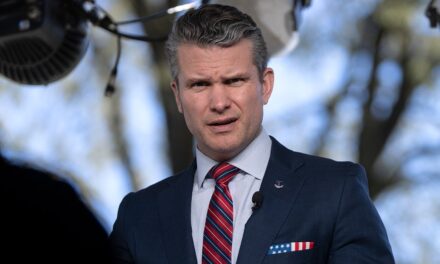In a recent public appearance, California Governor Gavin Newsom faced scrutiny as a whistleblower from a local gender clinic accused him of evading questions regarding treatments for young children, specifically those who are eight years old. This incident has ignited discussions surrounding pediatric gender dysphoria and the appropriateness of medical interventions for minors.
The controversy began during a press briefing where Newsom was asked about the protocols governing gender-affirming treatments for children. Without addressing the specifics, Newsom shifted the conversation, leading critics to argue that he was dodging an important topic that has serious ramifications for children and their families. This interaction sparked outrage among parents, advocates, and medical professionals alike who expressed concern over the lack of transparency in policies affecting youth healthcare.
The whistleblower, who worked at a prominent gender clinic, alleged that the administration is not only avoiding the complexities of such treatments but also neglecting the ethical considerations surrounding them. “When it comes to the health of our children, we cannot afford to sidestep the tough questions,” the whistleblower stated. “Parents deserve to know exactly what interventions are being proposed and how they will impact their children in both the short and long term.”
This incident is occurring against a backdrop of increasing polarization over the subject of gender identity in the United States, particularly when it pertains to young individuals. Supporters of gender-affirming care argue that these treatments provide essential support for children grappling with gender dysphoria, potentially helping to alleviate significant mental health issues. Conversely, opponents raise concerns about the irreversible nature of certain medical procedures and stress the need for caution when considering interventions for minors.
The backlash from various groups has been significant, as some parents and advocacy groups have voiced their frustration with elected officials, including Newsom, for their perceived unwillingness to engage in open dialogue about these pressing issues. Many argue that discussions surrounding the medical treatment of kids should involve more than just sound bites and platitudes. They seek substantive explanations from policymakers about what constitutes appropriate care, especially for those as young as eight.
“This isn’t just a theoretical debate,” said a spokesperson from Families for Ethical Treatment of Youth, a nonprofit advocating for families navigating gender identity challenges. “These are real lives, and decisions made today will affect these children for years to come. We need leaders who will face these issues head-on and provide clear, science-based guidance.”
In recent years, several states across the country have introduced legislation aimed at regulating the provision of gender-affirming care for minors. Some of these measures suggest putting age restrictions on certain treatments, citing concerns around the ability of children to make informed decisions regarding their bodies and futures. Critics of such legislation argue that it stigmatizes vulnerable individuals who may already be facing significant emotional distress and isolation.
The governor’s approach to these discussions becomes even more vital as California remains a pivotal landscape for educational and legislative reforms associated with transgender healthcare. The state’s progressive stance on LGBTQ+ rights has frequently positioned it as a leader in promoting inclusivity and access to healthcare, particularly for marginalized communities. However, with the recent whistleblower claims and heightened public scrutiny, many wonder if that reputation is at risk.
This latest incident intensifies prior debates within legislative chambers, with calls for greater accountability among healthcare providers who offer gender-related services. Parents are increasingly demanding to know the criteria that clinics use to recommend specific types of care and the qualifications of the professionals providing that care. They emphasize the need for comprehensive mental health assessments before determining treatment paths for minors.
Moreover, mental health specialists have begun emphasizing the importance of thorough evaluation processes. They argue that a child’s mental, emotional, and physical health should all be considered before proceeding with any medical interventions. “We owe it to our children to ensure they understand their choices and the potential consequences of these medical decisions,” remarked a pediatric psychologist specializing in gender dysphoria.
As the dialogue around treatment options continues, the impact on local and national political landscapes remains significant. For Newsom, the repercussions from this incident will likely affect his administration and its policies moving forward. Observers are keenly watching to see if he will formulate a clearer stance on age-appropriate healthcare and take steps to promote transparency in gender-affirming treatments.
Moreover, this case raises questions about the balance between protecting children and affirming their identities. As political and social conversations evolve, many advocates hope that the ultimate focus will be on the wellbeing of children. Advocacy organizations are urging leaders not only to address the concerns raised but also to engage in forthright discussions with stakeholders on all sides of the issue.
The whistleblower’s words have resonated with many, increasing the urgency for stakeholders, including parents, medical experts, and political leaders, to engage in constructive discussions. With differing perspectives, it’s clear that there are myriad thoughts on how to handle gender dysphoria in children, and no single approach will satisfy everyone. The road ahead will require a commitment to understanding and respecting these complexities.
As this story unfolds, it is clear that discussions around gender identity and treatment will remain dynamic and emotionally charged. The potential legislative outcomes for children impacted by these discussions hang in a delicate balance, with outcomes that could shape the lives of countless kids in California and beyond. The need for clarity, understanding, and accountability remains paramount as society navigates these uncharted waters.
In conclusion, as Governor Newsom navigates the fallout from this incident, the broader conversation about the treatment of transgender minors requires serious, nuanced attention. With public trust at stake, leaders have a heightened responsibility to engage openly with families and healthcare professionals, addressing the pressing questions surrounding gender-affirming care for young children. The welfare of our future generations depends on a collaborative approach that respects both the dignity of individuals and the complexities of their health decisions.
































